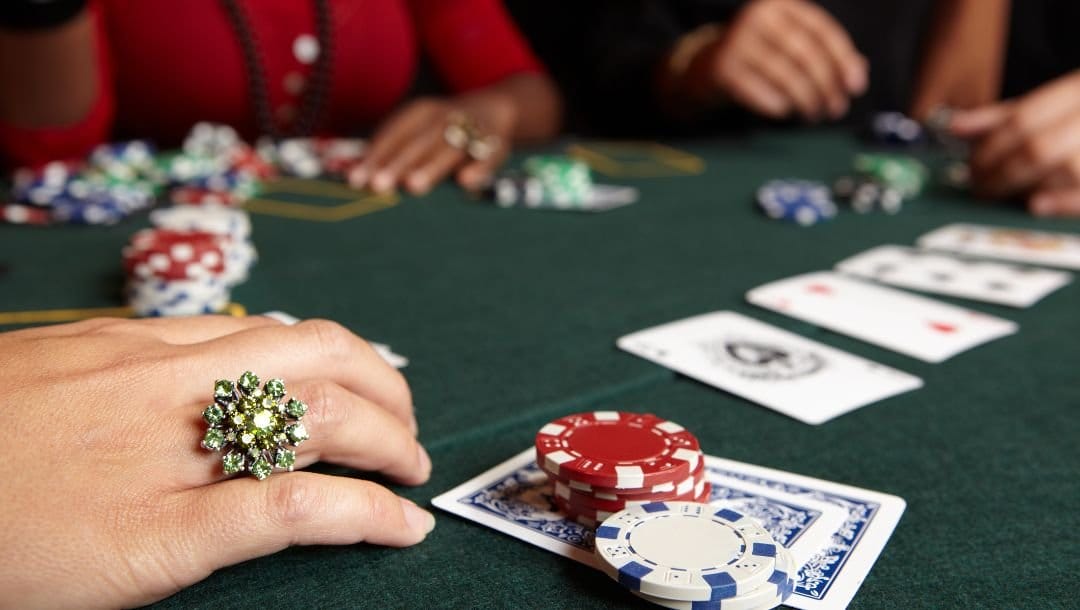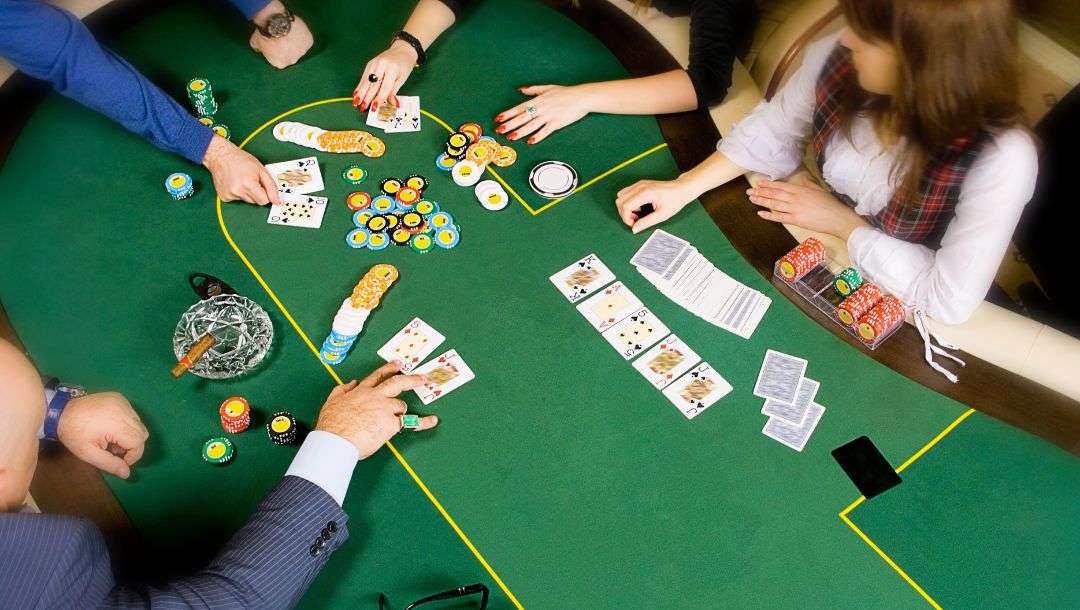
Position is critically important in both traditional and online poker. Your position relative to the button (dealer) has – or should have – a tremendous influence on your strategy at the poker table. Yet, many players lack a firm understanding of why this is the case. As a result, they may miss out on opportunities to play speculative hands or get tangled up in pots they should have known better than to get into. Read on for a basic understanding of how to avoid these problems.
Playing From the Button
A typical game of six-max poker has the following positions: under the gun (early position,) hijack (middle,) cutoff (late,) button (late) and the small and big blinds. The poker terms “early,” “middle” and “late” refer to how early or late the player acts in the betting round. Post-flop, the blinds are also (very) late. There’s a sliding scale of advantages and disadvantages that runs from the earliest positions through to the button. The simplest way to grasp this is to look at things from the point of view of the player with the best position: The button.
Playing from the button means that you get to act last on every betting round after the flop. The advantages of this position cannot be underestimated. If you have the strongest hand, your opponents will have to act before you, revealing the strength of their holdings and setting you up to extract more post-flop profit than you would be able to in an earlier position. Conversely, an opponent with a hand that beats yours will be hard-pressed not to give this information away when they have to act before you post-flop. (Unless they’re extremely crafty, which should remind you to always be prepared to adjust your strategy to unpredictable players.) The advantage here is that you can get away from a beaten hand more cheaply from the button than from any other position.
The advantage of being the last to act after the flop is so considerable that players will often try to “buy the button” during the pre-flop betting round. This comes down to making a raise calculated to drive out any players seated between them and the button, button included. This, then, makes them the first player to act on every future street, effectively passing the button to them.
Early to the Party

Playing hands from earlier positions is risky. All the advantages of playing from late positions are advantages your opponents have over you. You have lower implied odds (the amount you expect to win after making a draw,) higher reverse implied odds (the amount you expect to lose if you complete your draw but your opponent still beats your hand) and less of a chance that you’ll be able to pick up the pot with a raise. The amount of EV (expected value) that you can expect to lose by playing from an early position is so high that the best strategic approach is to play only the type of hand that has the greatest pre-flop power.
Raising from an early position is particularly problematic because it signals real strength. If your opponents continue to play against you, it means that they, too, have powerful hands. The more players call your raise, the bigger the pot size will be post-flop, which puts you under pressure if you have to act early after the flop. Not only that, but you’ll be playing out of position on every post-flop street. As a result, only premium hands are worth raising from an early position pre-flop.
Poker Table Position and Speculative Hands
Acting in a late position helps you to know how many opponents you’ll have to contest the pot with, the strength of their real or represented holdings and the cost of getting involved in the pot. None of this information is available to players in early position. This has an impact on your decisions. For example, there are some hands you should fold in early position but which can be played from late position. Say you’re playing in an early position with nine-eight suited. This hand is unlikely to give you the highest card, meaning you won’t be favored to win against one or two opponents. But nine-eight suited does have an outside chance of growing into a flush or straight. If you decide to go for this long-shot bet, it’s best to play it against as many opponents as possible in the hope that they’ll pay you off should you hit your draw.
Now, this is the type of bet you play for one bet only. Calling a raise with a hand like this is just a waste of money most of the time. With all this in mind, it’s clear that this play is only worth attempting from a late position. From an early position, you have to guess what it’ll cost to play the hand and the number of opponents you’ll be facing. From a late position, you’ll know exactly how many opponents you’ll be playing against as well as the cost of playing further.
Another example of a hand that you should junk from an early position but consider playing from a late one is a small pair. This is a hand that plays better against fewer opponents. That’s because the flop is likely to contain bigger cards than your small pair. The more opponents at the table, the more likely it is that one of them will have a larger pair than yours post-flop. Against multiple opponents, you either need to flop three of a kind at odds of 7.5 to 1 or release your hand as soon as an opponent makes a bet. This makes a small pair too problematic to be raising from an early position. But if you’re in a late position and nobody’s even called the blinds, you can raise with a pair of twos and most likely steal the blinds, at least.
Poker Table Position and Strong Hands

Position also matters when you’re dealt bigger cards like ace-king or a premium pocket pair. These hands are also favored against fewer opponents. Here the idea is to raise from any position in a bid to reduce the field and drive out speculative hands, such as nine-eight suited, which need multiple opponents and a low cost to be viable. A third of the time you’ll flop an ace, a king or a better hand if you play ace-king. But if you reduce the field to only one or two callers, you can miss the flop completely and still have the strongest hand because your opponents might miss it too. Against five or more opponents, the odds that the flop you missed will help them is much greater.
Strengthen Your Poker Position With BetMGM
Put theory to practice and play the game when you register at BetMGM. Join us on our mobile app and maximize your profits from every poker position in our cash games and daily, weekly and monthly poker tournaments. However big or small your bankroll is, there’s a suitable online poker event for you at BetMGM.
Strengthen your hand in poker by understanding the importance of table positions. We share tips and insights to guide your play from early to late position.


